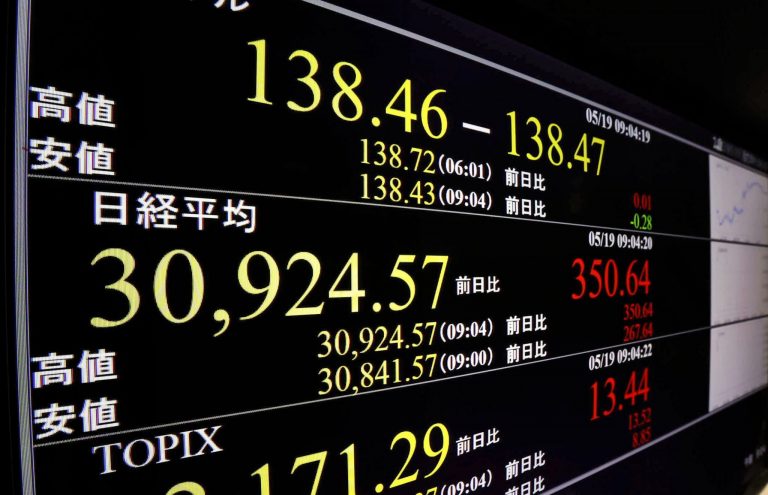
Japan’s Nikkei index hit a 34-year high this week, reaching its highest level since 1990. The benchmark index rose 2.1% on Friday, closing at 31,648.71 points. The Nikkei has gained more than 20% since the start of the year, outperforming other major global markets.
What is driving the Nikkei’s rally?
There are several factors behind the impressive performance of Japan’s stock market. One of them is the strong recovery of the Japanese economy from the impact of the coronavirus pandemic.
Register for Tekedia Mini-MBA edition 19 (Feb 9 – May 2, 2026): big discounts for early bird.
Tekedia AI in Business Masterclass opens registrations.
Join Tekedia Capital Syndicate and co-invest in great global startups.
Register for Tekedia AI Lab: From Technical Design to Deployment (next edition begins Jan 24 2026).
Japan’s gross domestic product (GDP) grew by an annualized rate of 21.4% in the third quarter of 2020, rebounding from a record contraction of 28.8% in the previous quarter. The growth was driven by a surge in consumer spending, exports, and business investment.
Another factor is the positive outlook for Japan’s corporate earnings. According to a survey by Nikkei, the combined net profit of listed companies is expected to increase by 38% in the fiscal year ending in March 2021, compared to a 25% decline in the previous year. The sectors that are expected to benefit the most from the earnings recovery are technology, automobiles, and financials.
A third factor is the political stability and continuity under the new Prime Minister Yoshihide Suga, who took office in September 2020 after Shinzo Abe resigned due to health reasons.
Suga has pledged to continue Abe’s economic policies, known as “Abenomics”, which consist of aggressive monetary easing, fiscal stimulus, and structural reforms. Suga has also vowed to tackle the challenges posed by the aging population, the low birth rate, and the digital transformation.
What are the challenges and opportunities for the Nikkei?
Despite the strong momentum, there are still some risks and uncertainties that could affect the Nikkei’s performance in the future. One of them is the ongoing COVID-19 crisis, which could derail the economic recovery if it worsens or leads to more lockdowns and restrictions. Japan has reported more than 400,000 cases and over 6,000 deaths so far and is currently facing a third wave of infections.
Another challenge is the high valuation of some stocks, which could make them vulnerable to profit-taking or corrections. The Nikkei’s price-to-earnings ratio (P/E) is currently around 20, which is higher than its historical average of around 15. Some analysts have warned that the market may be overheating or entering a bubble territory.
On the other hand, there are also some opportunities and catalysts that could boost the Nikkei further. One of them is the potential for more fiscal and monetary stimulus from the government and the Bank of Japan (BOJ), especially in light of the upcoming Tokyo Olympics in July 2021. The Olympics are expected to generate economic activity and tourism revenue for Japan, as well as showcase its technological prowess and innovation.
Another opportunity is the possibility of more mergers and acquisitions (M&A) among Japanese companies, as they seek to enhance their competitiveness and growth prospects in the global market. Japan has seen a wave of M&A activity in recent months, such as Nippon Telegraph and Telephone’s (NTT) buyout of its wireless unit NTT Docomo, and Hitachi’s acquisition of U.S.-based software company GlobalLogic.
Japan’s Nikkei index has hit a 34-year high this week, reflecting the strength and resilience of its economy and corporate sector amid the COVID-19 pandemic. The index has been supported by several factors, such as the economic recovery, the earnings growth, and the political stability under Prime Minister Suga.
However, there are also some challenges and uncertainties that could pose downside risks for the market, such as the COVID-19 situation, the high valuation, and the external environment. Therefore, investors should be cautious and selective when investing in Japanese stocks, while also looking for opportunities and catalysts that could drive further growth.



